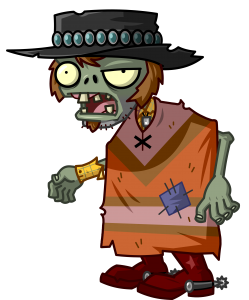Apologies, all, for my prolonged abscence: I’m still figuring out this whole work/life/blog balance business.
Fortunately I was recently reminded of one of the things I always wanted to write about in the event that I one day started blogging, and was thus inspired to go forth and blog about it.
What did I want to write about? The idea that faith is above reason. Cue Catechism!
“Though faith is above reason, there can never be any real discrepancy between faith and reason. Since the same God who reveals mysteries and infuses faith has bestowed the light of reason on the human mind, God cannot deny himself, nor can truth ever contradict truth.”37
That first bit used to really, really bother me. The rest was great and all, but casually putting faith above reason? As they say on Tumblr; “Problematic”.
I can’t say that the botheration has entirely disappeared. Most of that chapter of the catechism is concerned with specifically Christian faith, and on that point I still don’t really understand what it means. If one can legitimately use reason to test the claims of faith, isn’t this implicitly putting reason and faith on at least a level pegging? I’d welcome some clarification on this point.
But there’s no doubt in my mind that faith is above reason. In fact, it’s absolutely necessary to start reasoning at all. What do you mean by this, you ask?
Zombies. I mean Zombies. Philosophical Zombies.

“Philosophical zombies” is a slightly tongue-in-cheek way of referring to what philosopher Richard Swinburne calls “creatures, exactly like humans in external appearance, actions, and stimulus response, but with no thoughts, feelings, or sensations.” In other words, creatures with no subjectivity.
Swinburne was imagining such creatures in order to comprehensively prove false AJ Ayer’s ‘verification principle’ and Anthony Flew’s ‘falsification principle’. They argued that factual claims (claims that can be meaningfully said to be either true or false) must be in some way checkable through reason, either through being able to be verified, or falsified. Of course, the existence of a philosophical zombie is impossible to verify or falsify: any question you asked about his subjective experiences would be answered in exactly the same way as a human. Any brain scans would turn up the same brain-waves. Cut the zombie and he’d bleed – poke him and he’d yelp; bemoan the cancellation of Firefly and he’d sympathise: all automatically.
And yet “there exists a philosophical zombie” is obviously a factual claim: it is either true or it is false – it is certainly not meaningless or incoherent.
And yet, and yet (you see where I’m going here) it is quite impossible to ever be sure whether the statement is true or false. You never can tell with Philosophical Zombies.
But it’s much worse than that: one can never know for sure that one’s mother is not a philosophical zombie, or one’s lover, or one’s President. Indeed, as far as you know, this very blog post could be being written by Ben Joseph Conroy, philosophical zombie.
Even assuming that I do have thoughts and feelings (ask my brothers and sister about that), and that Patheos haven’t unleashed some kind of monstrosity on the public, how would you know that I have roughly the same sort of thoughts and feelings as you do? I always used to wonder as a child whether other people saw the same colours I did: as long as we were all pointing at the sky and saying “blue” we’d have no way of knowing whether what you called blue I called puce (I really hope nobody sees the sky as puce).
We all think in different ways to some degree (synesthesia is a particularly cool example), but how do you know that my subjective experience is anything like yours? Well, you don’t: and I don’t know that yours is anything like mine. Can’t be proven. Not possible. Again, we could scan each others’ brains, but the hard problem of consciousness exists for a reason: our similar brain states could be correlated with completely different conscious states.
Is that it then? Checkmate? Are we trapped forever behind the veil of ignorance, fated never to go beyond cogito ergo sum?
I don’t think so.
Because, of course, what I’ve been doing here is talking about deductive proof: absolute, logically-mandated certainty. But as Sherlock Holmes will tell you, that’s not the only kind: we can also look at something that quacks like a duck, walks like a duck, and looks like a duck, and conclude that it is almost certainly a duck. We can do inductive reasoning.
And I think we have to. We have to draw conclusions based on induction in order to have any meaningful relationship with reality as it is. And what’s more, to be human we sometimes have to commit to these conclusions. Kant’s noumena will not do when it comes to believing that my phenomenal (in more ways than one) girlfriend loves me. To really commit to her, I must trust: I must believe absolutely that she loves me in the same way I love her, absent any definitive proof or certainty. I must leap into the unknown. I must have faith.
Materialists like to define faith as “belief without evidence”, and hold it to be the height of irrationality. But “beliefs that can’t be confirmed with evidence” are essential.
The Catechism is right: we need faith to do anything at all. I’m not talking about blind fideism here: I’m talking about places where we take the evidence we have, and then we leap. Places where we need to assume certain axioms in order to make sense of anything else.
Can we trust our senses to give us accurate information? Well, we check them against other people’s senses, we imagine alternative explanations (The Matrix), we see if there’s any evidence for those alternative explanations (I’ll get back to you) and then… we leap. Faith.
Does anyone love me? Faith.
Can I trust another person? Faith.
Can I trust my own senses. You guessed it.
Can I assume that, when I go about my daily rounds tomorrow, I will not be surrounded by philosophical zombies? Not without faith.
In this life, there’s little that we can prove with reason alone. We can never really be sure of the ground on which we stand. But we can take a leap: a reasonable leap, but a leap.
Geronimo.
***
Play us out, 21st Century Monads:












